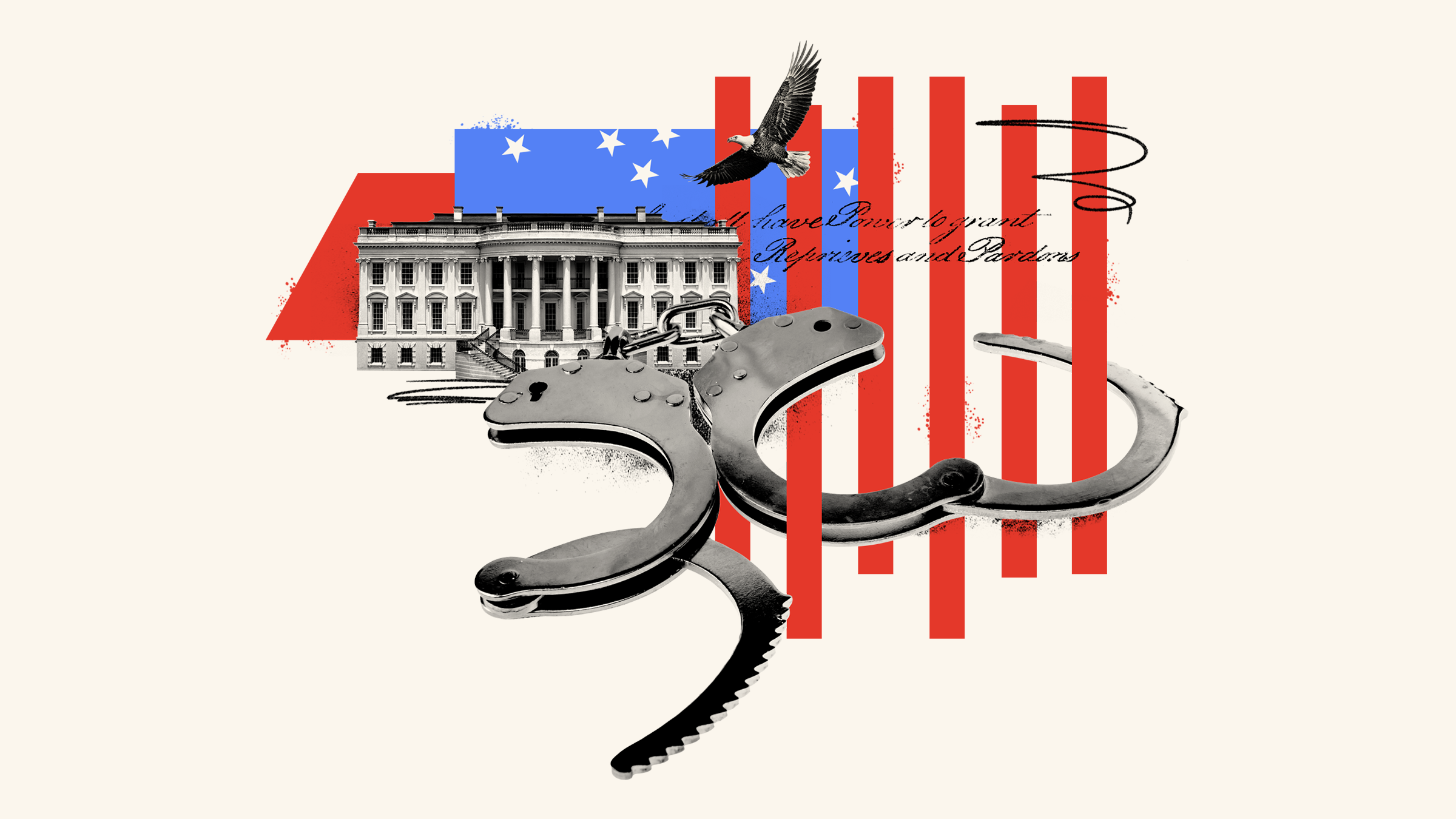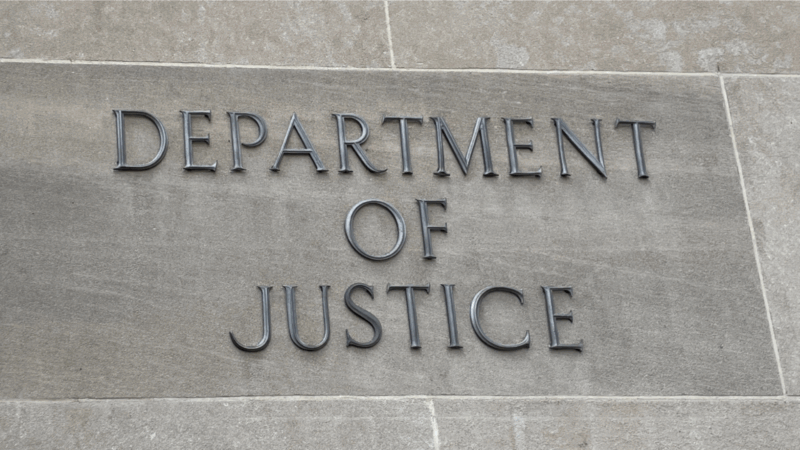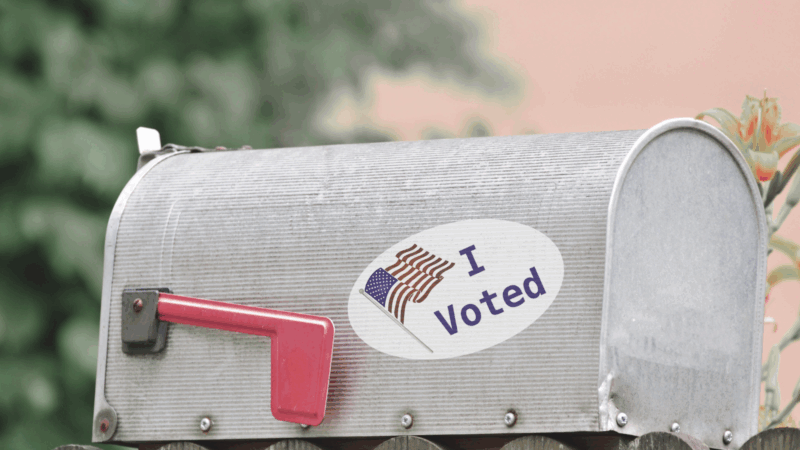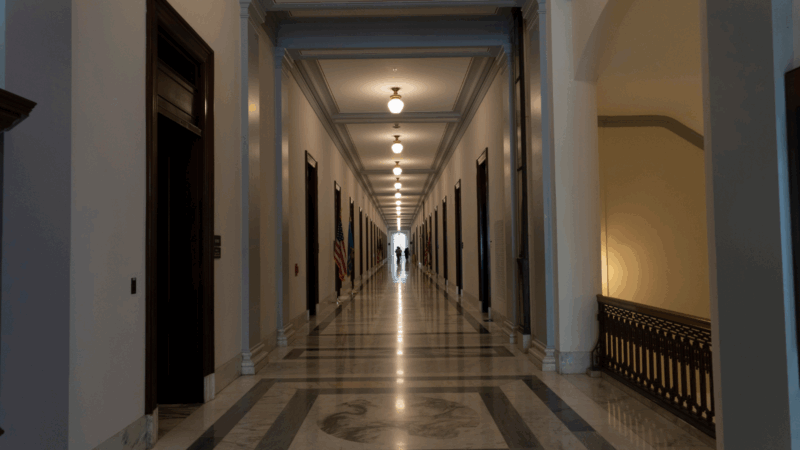Survey finds cross-partisan opposition to January 6 pardons
- June 25, 2024

In May and June of 2024, YouGov fielded a survey commissioned by United to Protect Democracy across 43 battleground congressional districts on voters’ views of presidential pardons: particularly, on the possibility of a future president pardoning his associates, himself, or participants in the events of January 6, 2021.
The survey found that:
- There is broad, cross-partisan opposition to pardons for those convicted of crimes related to January 6. Pardons for those convicted of certain violent crimes in particular—such as assaulting law enforcement or using a deadly or dangerous weapon—are especially unpopular, with majorities of Republicans, Democrats, and Independents disapproving.
- A majority of voters believe that January 6-related pardons may encourage future instances of political unrest. In particular, while a majority of older voters express concern, younger voters are especially concerned about the ramifications of January 6 pardons.
- There is also broad, cross-partisan opposition to self-pardons and pardons for staff and family members. This includes majorities among Republicans, Democrats, and Independents.
Read more: The presidential pardon power, explained Read more: The presidential pardon power, explained
Broad, cross-partisan opposition to January 6 pardons
The survey found broad opposition to the proposition of pardoning those convicted of crimes related to the events of January 6, with 59 percent of voters opposing pardons for January 6 generally. Opposition increased for pardons for those who were convicted of violent crimes, such as pardons for those who assaulted law enforcement (77 percent), assaulted members of the press (71 percent), or used a deadly or dangerous weapon (78 percent).


Opposition remained significant across partisan affiliations. For example, 57 percent of Republicans, 97 percent of Democrats, and 71 percent of Independents oppose pardons for those who assaulted law enforcement; and 59 percent of Republicans, 97 percent of Democrats, and 71 percent of Independents oppose pardons for those who used a deadly or dangerous weapon. There is no majority among any partisan constituency in favor of pardons for any surveyed offense.

Opposition to pardons for January 6-related crimes was also found to be strong among certain other surveyed constituencies. Among current and former members of the military, 63 percent disagree with pardoning those convicted of assaulting police officers. Among rural voters, 72 percent disagree with pardoning those convicted of using a deadly or dangerous weapon.

About 3 in 5 voters (61 percent) also believe that pardoning those convicted of crimes related to the events of January 6 would encourage future instances of unrest. Voters under 30 are significantly more concerned about the ramifications of January 6 pardons, with 7 in 10 young voters thinking that January 6 pardons, if granted, are cause for concern about the future. Still, a majority of older voters also agree that pardons for January 6 actors are likely to encourage future political unrest.

Broad, cross-partisan opposition to self-pardons and pardons for family or staff
This survey also asked voters whether they agree with a president issuing certain kinds of pardons. A significant majority of voters disapproved of each: specifically, disagreeing that presidents should pardon themselves (78 percent), family members (77 percent), or staff (69 percent). This included majorities of Republicans, Democrats, and Independents.

Responses suggest a notable degree of consensus across the political spectrum. 50 percent of Republicans, 76 percent of Independents and 84 percent of Democrats disagree with a president using the pardon power to pardon associates, such as White House or campaign staff. Even larger majorities disagree that presidents should have the ability to pardon family members or themselves. 64 percent of Republicans, 77 percent of Independents and 88 percent of Democrats disagree that presidents should be allowed to pardon family members; while 59 percent of Republicans, 76 percent of Independents and 96 percent of Democrats disagree that a president should be allowed to pardon himself.
Opposition to these pardons remained high not only by party affiliation, but also by respondents’ votes in the 2020 election. For example, among those who voted for Trump in 2020, 61 percent believe a president should not be able to pardon himself (and for Biden, 97 percent). Additionally, 52 percent and 65 percent of Trump voters believe that a president should not be able to pardon staff or family members, respectively (and among Biden voters, 85 percent and 89 percent).

Want more Democracy Insights?Subscribe to our weekly newsletter
Methodology
This survey is based on 1,200 interviews conducted by YouGov on the internet of validated voters in 43 battleground congressional districts. Battleground districts are defined by the 2024 Cook Political Report House Race Ratings at the time of the survey. The sample was weighted according to gender, age, race/ethnicity, education, and U.S. Census region based on voter registration lists, the U.S. Census American Community Survey, and the U.S. Census Current Population Survey, as well as 2020 Presidential vote. Respondents were selected from YouGov to be representative of registered voters living in battleground congressional districts. The weights range from 0.13 to 6.02 with a mean of 1 and a standard deviation of 0.57.
The margin of error (a 95% confidence interval) for a sample percentage p based upon the subsetted sample is approximately 3.3% The margins of error are calculated using the formula:
where CV is the coefficient of variation of the sample weights and n is the sample size used to compute the proportion. This is a measure of sampling error (the average of all estimates obtained using the same sample selection and weighting procedures repeatedly). The sample estimate should differ from its expected value by less than the margin of error in 95 percent of all samples. It does not reflect non-sampling errors, including potential selection bias in panel participation or in response to a particular survey.
Related Content
Join Us.
Building a stronger, more resilient democracy is possible, but we can’t do it alone. Become part of the fight today.
Donate
Sign Up for Updates Sign Up for Updates
Explore Careers Explore Careers
How to Protect Democracy How to Protect Democracy



